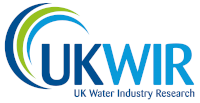The Chemical Investigations Programme Phase 2, 2015-2020 – Introduction
29/08/2017
Recent research has focused attention on trace substances in surface waters. As a result, current legislation establishes environmental quality standards (EQSs) for a wide range of chemicals in rivers where they may have the potential to damage flora and fauna or even pose risks to human health. Many of the substances of interest have the potential to be present in sewage and treated wastewater. In order to address the challenge of meeting EQSs, the Water Industry under the coordination of UKWIR and in collaboration with UK regulatory agencies initiated the Chemical Investigations Programme (CIP). Initially, this involved an extensive effluent monitoring programme which was used: a) to prioritise EQS compliance risk for the substances of concern; b) to illustrate that current sewage treatment processes provide a significant, though not always sufficient, barrier against release of these substances to river waters, and, c) to show that domestic use of household products is the predominant source of the substances of interest.
It is also important to note that for some substances, including phosphorus and some hydrocarbons, wastewater is far from being the principal source.
An assessment of the overall likely costs of measures to address potential compliance issues indicated the likely need for substantial investment by the Water Industry and of a consequent significant increase in customer bills. This focused attention on the need to deliver clear proposals for a way forward that are, likely to be effective, proportional to the Water Industry contribution to contamination, and demonstrably justifiable down to a detailed local level.
These requirements were the basis of the second phase of the CIP that was initiated in 2015. This £140M programme being undertaken from 2015 to 2020 comprises:
- Monitoring of effluent quality at over 600 wastewater treatment works’ sites with corresponding determination of river quality upstream and downstream of the effluent discharge – this will form the basis of a high confidence assessment of the need for action to be taken at the site concerned (noting that such action might include control of input to the works as well as options relating to changes in treatment processes). These works have been chosen as representing the sites where low dilution and pressures of other non-Water Industry inputs are factors that might jeopardise EQS compliance;
- Evaluation of the likely effectiveness of novel wastewater treatment processes to provide assurance that discharges are of quality consistent with EQS compliance or at least that they contribute to significant improvements in river water quality – this is intended to provide a basis for options to achieve improved effluent quality where required;
- Determination of different sources/inputs for contaminants of interest in five river catchments - consideration of the effects of water quality management options taken at different discharge sites in a given catchment on improvements in overall river quality and costs of implementation.
- Associated work including a major series of treatment technology trials for the reduction of phosphorus concentrations in wastewaters and investigations into contaminant concentrations in the wastewater sludge treatment process.
The first outputs of this programme are currently being compiled, reviewed and assessed with the aim of identifying pollution control measures that are necessary, worthwhile and justifiable. This will ensure that the Water Industry continues to play its significant role in the protection of the water environment, whilst delivering a cost effective and sustainable service to water consumers.
